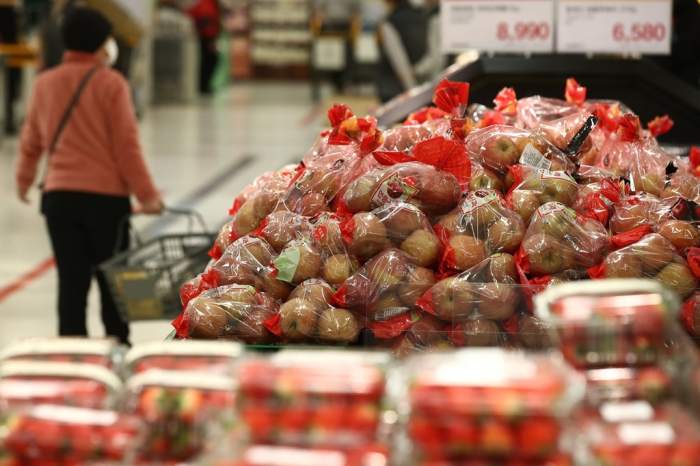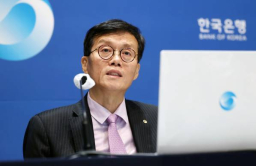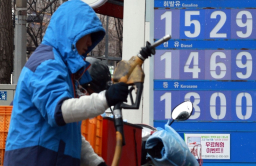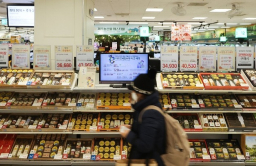-
KOSPI 2577.27 -2.21 -0.09%
-
KOSDAQ 722.52 -7.07 -0.97%
-
KOSPI200 341.49 +0.02 +0.01%
-
USD/KRW 1396 -2.00 0.14%
Korea’s inflation rebounds, BOK to keep interest rates in H1
Economy
Korea’s inflation rebounds, BOK to keep interest rates in H1
Finance Minister says the government will do its utmost to push inflation below 3%
By
Mar 06, 2024 (Gmt+09:00)
1
Min read
News+

South Korea’s headline inflation rebounded in February from a six-month low on higher prices of oil and agricultural products, adding to expectations that the central bank will maintain interest rates in the first half.
Consumer prices rose 3.1% last month from a year earlier, government data showed on Wednesday, exceeding market forecasts of 3%. In January, the inflation fell for a third straight month to 2.8%, the lowest since July 2023.
Agricultural product costs surged 20.9% in February on-year, lifting overall inflation by 0.8 percentage points, with fresh fruit prices up 41.2%, the highest since September 1991, according to the data. Petroleum costs eased 1.5%, narrower than a 5% decline in the previous month, due to rising global oil prices.
“The government takes the recent price situation seriously. We plan to do our utmost to ensure that inflation stabilizes in the 2% range as soon as possible,” said Finance Minister Choi Sang-mok in a meeting with other ministers after the data was released.
BOK SAYS DIFFICULT TO CUT RATES IN H1
Last month, Bank of Korea (BOK) Governor Rhee Chang-yong said the central bank is unlikely to cut interest rates in the first half as inflation remains higher than its target of 2% after keeping its policy rate unchanged at 3.5% for a ninth straight session.
The remarks came amid calls for monetary policy easing as price pressure in Asia’s fourth-largest economy cooled amid sluggish economic growth.
Annual core inflation, which excludes volatile food and energy prices, stayed at 2.5% in February, the lowest point since December 2021.
“We think the Bank of Korea will pay more attention to core inflation being stabilized than the choppy headline figures,” ING said in a note.
“We expect the BOK to start easing in 3Q24, but monetary policy should remain in restrictive territory throughout 2024. The higher-for-longer interest rate environment will weigh on already weak domestic growth, so we expect GDP to decelerate from the current quarter through most of 2024.”
Write to Se-Min Heo at semin@hankyung.com
Jongwoo Cheon edited this article.
More To Read
-
Feb 22, 2024 (Gmt+09:00)
-
Feb 02, 2024 (Gmt+09:00)
-
Dec 29, 2023 (Gmt+09:00)





